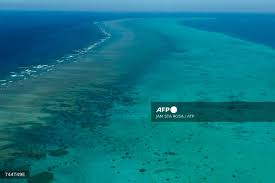NZ Waters Warming 34% Faster Than Global Average, Study Warns
New Zealand's coastal waters are warming 34% faster than global averages, threatening marine ecosystems and coastal communities, according to a new government study highlighting urgent climate challenges.

Rising sea temperatures in New Zealand's coastal waters threaten marine ecosystems and native species
New Zealand's Marine Crisis: Accelerated Ocean Warming Threatens Ecosystems
A new government report released Wednesday reveals a stark reality for New Zealand's marine environment: coastal waters are warming at a rate 34% faster than the global average, presenting unprecedented challenges for the island nation's ecosystems and coastal communities.
Alarming Findings Point to Climate Emergency
The comprehensive 'Our Marine Environment' report outlines multiple threats facing New Zealand's waters. Beyond accelerated warming, the study documents increasing ocean acidification and rising sea levels that pose risks to both marine life and coastal infrastructure.
Department of Conservation marine advisor Shane Geange emphasizes the gravity of the situation: "Global warming has made New Zealand's sea temperatures rise much faster than the worldwide average, leading to more frequent and severe marine heatwaves, accelerating sea level rise, and increasing ocean acidification."
Economic and Environmental Implications
The findings come at a critical time for New Zealand, as the country grapples with broader environmental challenges. Much like the recent conservation efforts highlighted in native species protection, marine ecosystems face mounting pressure from climate change.
The economic implications are significant, with more than 200,000 homes valued at US$100 billion (NZ$180 billion) located in areas vulnerable to coastal flooding. This economic threat comes as New Zealand's economy faces other challenges requiring careful policy responses.
Impact on Marine Life and Biodiversity
The report details concerning trends for native species:
- Sea-surface temperatures increased between 0.16°C and 0.26°C per decade from 1982-2023
- Native species struggling to adapt to warmer, more acidic conditions
- Yellow-eyed penguins experiencing increased mortality rates
- Invasive species gaining advantages in changing conditions
Call for Immediate Action
As various national reform initiatives gain momentum, experts stress the urgency of addressing marine environmental challenges. "We now have enough evidence to take action, and delaying risks further harm to our marine ecosystems," Geange warns.
Ella Thompson
Ella Thompson is a Wellington-based journalist covering politics, climate policy, and digital freedoms in the Pacific. With a background in law and international relations, she brings sharp analysis and a passion for civic accountability.
